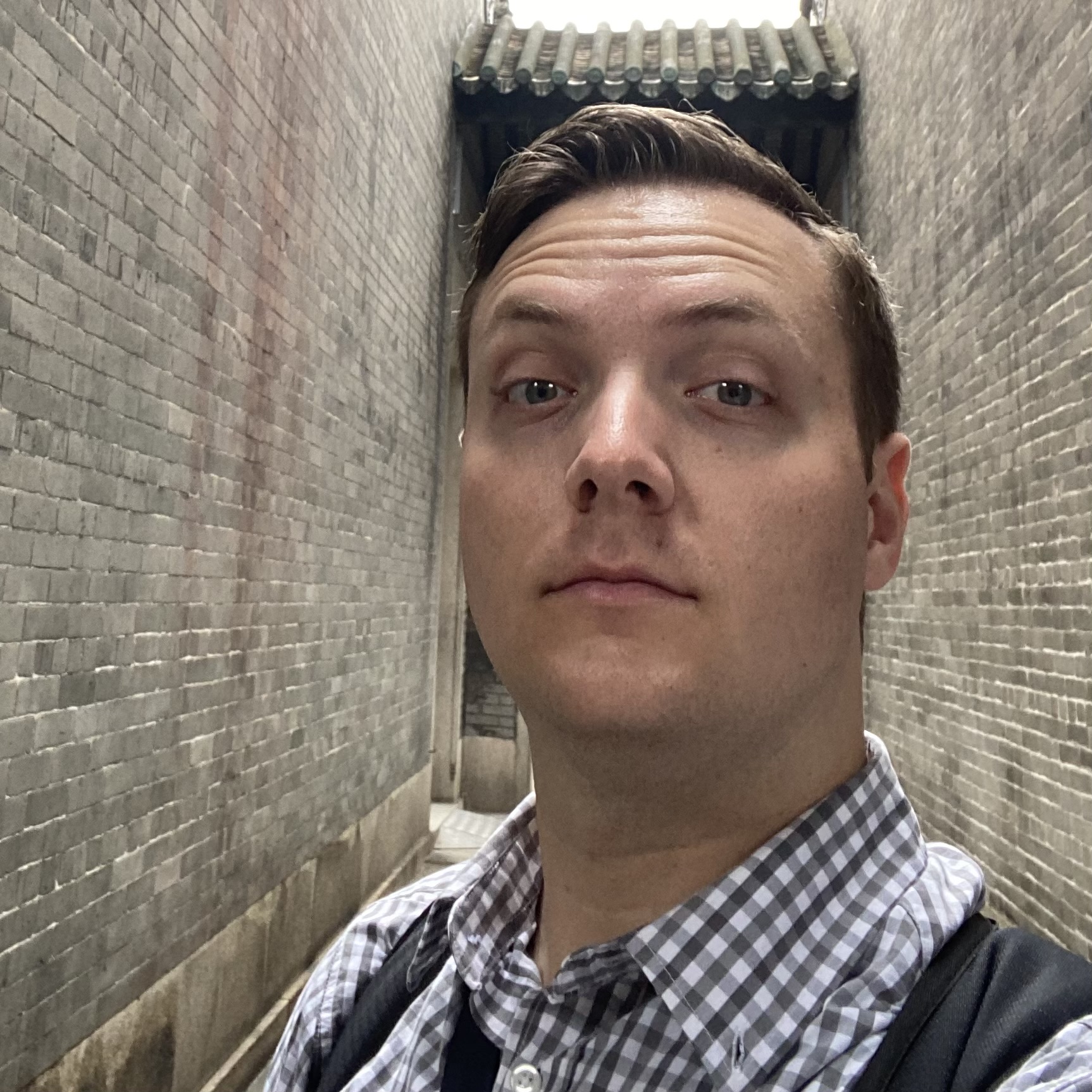When I finally told Circe that I was going to leave, she simply smiled back with a proud yet understanding expression, as if she knew this was the decision I would make from the beginning. She had simply been waiting, and I had finally come to terms with what I had to do.
“Do you still think I should go to Sparta?” I asked her. “I doubt he’d be there still, if he ever was in the first place.”
I was turning the spindle as Circe sat at her loom. The motion of turning wool into thread had become instinctual by then. I could do it pretty quickly, but if my focus lapsed too much, the tension would be too strong, and the line would snap.
“I agree, he might not be there,” she said. “But you might be able to find a trace of him there.”
“I guess so, but where do I even start? How do I even get there?”
“Now, you must be patient. A way will provide itself now that you are ready.”
“Patience. Right.” I rolled my eyes. “I’ll just sit and wait for something to happen.”
“Do not wait, young Icarus. Prepare yourself.”
I sighed and said, “What does that even mean?”
“Opportunity is not awarded for idleness,” she replied.
“I get that, but what do I do until that opportunity comes?”
“You can start by restoring that room back to the way it was before you arrived.” She smirked.
She was right. I was never the tidiest person. I inherited that from my dad. The labyrinth he’d made to hold the minotaur was designed to get things lost inside it. His workshop was not, but you’d be hard-pressed to find anything you were looking for. Following suit, the room Circe had given me had slowly grown into a cluttered mess, starting with the flying apparatus.
“Fine, then,” I said.
We continued our work in silence for some time, while I pondered what else needed to happen before I could leave Aeaea. The thread broke a handful of times, so I had to tie the two ends together. It wasn’t hard, just inconvenient.
The next day, I started early with my usual routine but returned to my room after my first meal. I knew my room was in disarray, but I usually only slept there. In the midday light, and despite my tendencies, I was still surprised with how much stuff I had collected and left strewn about. There were rams’ horns and shells, river-smoothed stones and feathers. There were even a few sticks for some reason. The floor was littered with scraps of paper like a written record of my life to that point. I was never good at maintaining such things. I started by organizing everything. I stored anything worth keeping in a chest Circe lent me and tucked it away for safekeeping and disposed of the rest. I had finished this by late afternoon, but my wings still remained.
I left them for last in a symbolic gesture, I suppose. Before I started, Circe asked me to collect the wax and burn the rest. That made the whole task a lot longer, but it gave me time to reflect on my dad while I undid his handiwork. He was so meticulous and careful. He only worked on the wings late at night, so I was often asleep, but I knew he’d placed each feather by hand. The wings themselves–before I smashed them–were wonderfully constructed. They boasted flexibility and strength, proving all the more clearly that it was my carelessness that broke them. Had I the least inclination to watch my father closely back then, I might have been able to fix the apparatus. Unfortunately, the choices I made left that unlikely. So I picked it apart piece by piece. The feathers he’d painstakingly collected and placed, I plucked out; the wooden struts he’d carefully shaped and bound together, I broke apart; the wax he’d thoroughly spread, I scraped off and set aside.
Circe took the wax for who knows what, and the rest I added to the hearth. It burned nicely. The feathers sparked and flared as the upward draft of the heat blew them into the air, transforming to ash before hitting the ground.
No more than two days passed since finishing this task did Circe’s promised opportunity come about. The previous night, the sea to the south was ravaged by a storm. Dark and heavy clouds obscured the horizon, and arcs of lightning rimmed their bellies and the crests of the belligerent waves. I could only imagine what quarrel between Zeus and Poseidon could create such a tempest.
The next morning, on my walk, I found a ship moored in the cove on the southern shore. Its sails were bundled up to the mast and its hull seemed to be in good order. There were men moving about the deck, but I didn’t sense any urgency from them. There was a flag waving in the morning breeze—scarlet with gold embellishments—but I did not recognize it from the ships that made harbor in Knossos, but by all accounts, it reminded me of similar vessels that transported goods and game around the many island states in the Cretan sea.
Quickly, I returned to the house and told Circe what I saw.
“You’re in luck,” she said. “It’s a Laconian ship.”
“Really!” I looked in the direction of the cove, then back to Circe. “And do you think it will take me to Sparta?”
“It won’t make it all the way to Sparta, but it should get you closer than Aeaea.”
“Right. Then I suppose I should get my things ready and return to the ship before it leaves.”
“Undoubtedly,” she said, “But find me before you depart.”
I nodded in assent and left for my room. It was still fairly tidied except for a few items I’d set aside for the day I would leave the island: a walking stick I had carved, a tattered wool cloak Circe said I could have, and a canvas sack filled with food. I took one last look at the room that had been mine for the past few months. It looked so bare now that I had cleaned it out and stowed my things away, and I wondered if it would ever be mine to borrow in the future. My path led away from Aeaea for now, but I knew I would be back.
Eventually, I found Circe harvesting olives on the south trail accompanied by her lioness. When they saw me, Circe told me to follow her, and I did. We walked side by side down the path toward the cove and as we did, we talked.
She told me not to worry about her or the island when I was gone; she had tended everything alone before, and she could do so from then on. She told me to keep my wits about me; not everyone was as generous or understanding as she was, and many would try to take advantage of me. She promised me that I would always be welcome on Aeaea, and I should never be afraid to come back.
When we were within sight of the ship, we stopped.
“Here. Take this,” she said and handed me a heavy purse.
“What’s this?” I said.
“You will need to pay for your passage somehow, and you cannot always trust the good will of men.”
She looked away, and her face twisted slightly with a bitter reminiscence of the past I did not wish to pry into. It melted away and her eyes–with their power and warmth–locked with mine. I broke away to look inside the purse to find it full of gold and silver coins. For a second, I wondered why someone who lived a subsistent solitary lifestyle on an island would have so much money but pushed those thoughts from my mind and accepted the gift.
“Thank you,” I said and placed the purse in my sack.
“And take these,” she said. She passed over the basket of olives. “They’ll certainly sweeten the deal.” She smiled.
I took them and started toward the ship, but Circe stopped me with a hand on my shoulder. I turned to face her again, and she embraced me. At first, I was startled, since our relationship to that point had never expressed such familial intimacy, except maybe vocally. She then placed her hands on my shoulders, leaned forward and kissed each cheek, saying:
“May the Fates guide you on your journey. May Fortune favor your every endeavor.”
I forced some expression of gratitude—though the words have escaped me—and I departed. Glancing back once more before descending to the ship, I could still see her watching me. I raised my hand in farewell, and she did the same. I entered the cove and boarded the ship.
I was immediately met by a man with broad shoulders and a golden leathery complexion.
“Ho! What do you think you’re doing?” he said to me.
“I’m looking for passage off this island,” I replied.
“And you think we’ll just take you?”
His arms were crossed, but he dropped them to place a hand on the pommel of his knife sheathed at his hip. I instinctively took a step back toward the boarding ramp.
“I’ll pay you. I just need to get to Sparta.”
If I was trying to hide my fear, I was doing a pretty poor job because his expression switched into a fit of laughter.
“Ha!” he roared, slapping me on the shoulder, “Relax, kid! Don’t worry. We’re heading that way regardless. What are you going for?”
“I’m looking for my father. We were… separated.”
“I see,” he said. “I’m sorry to hear that. How long have you been shipwrecked here?”
Among the many warnings Circe gave me, the most important was to be sparing about what and how much I tell strangers. I understood that from a young age while living in a palace under a king with the intractable desire to control my dad, information was valuable. White lies and half truths were currency. You never knew who was listening or who knew what. In this case, I would lean into his assumptions until we parted ways.
“A few weeks. We were caught in a storm, and I landed here. I don’t know where he was taken.”
The sailor clearly had more questions he wanted to ask, but his face softened, “We were almost struck by the storm from last night—you probably saw it—but we found this island in time and made harbor.”
“My time here has been good,” I said, “but when I saw your ship, I was happy I would have the chance to leave.”
He smiled, then extended his hand.“We’ll be happy to take you as far as we can. Let’s worry about the cost of fare later. The name’s Antanacles.”
“Icarus,” I said, and we shook.
Antanacles walked me around the ship. I learned that he was the one in charge and that this ship was one of several others his father owned as part of a trading fleet. I left the basket of olives with the man responsible for rationing provisions. Antanacles introduced me to the other crew. They were predominantly sailors, but there were also many trained soldiers or mercenaries who were hired to provide protection against pirates. The threat of pirates never crossed my mind before. I heard there were some strongholds on Crete, but this was the first time I was venturing out into the wider world. Antanacles and Dynatos—the one who oversaw the security of the ship—assured me that they would do their best to avoid confrontations with pirates, and if they should engage with us, we would oppose them.
My fears allayed, we continued the tour. I was given a bedroll and a waterskin. They were prepping to depart at high tide, so Antanacles told me to sit tight and wait. I found a comfortable spot under the deck, out of the sun and out of the way of the sailors making preparations. As I waited, I fell asleep, stuck on the liminal edge of tangible progress and vulnerable patience.
About the Author
 Henry Young is a writer who enjoys reading and exploring myth. While he has a bachelor’s degree in Computer Science, he finds more joy in pursuing writing and will be beginning his master’s degree in English at Brigham Young University in the Fall.
Henry Young is a writer who enjoys reading and exploring myth. While he has a bachelor’s degree in Computer Science, he finds more joy in pursuing writing and will be beginning his master’s degree in English at Brigham Young University in the Fall.
![]()






